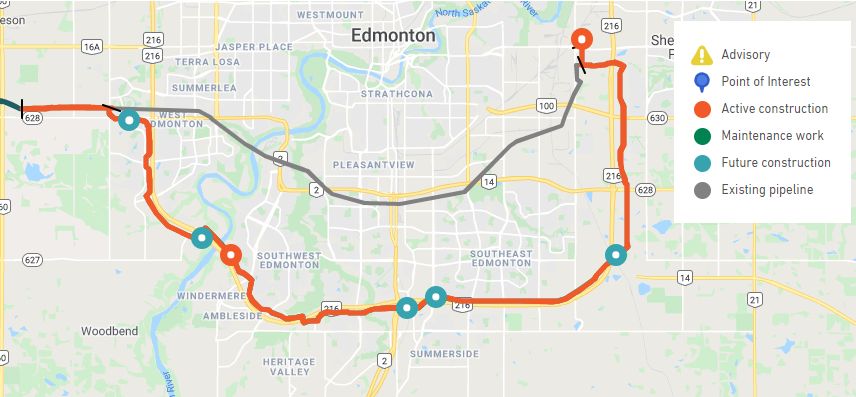A Federal Court of Appeal ruling Tuesday removes the last active court hurdle to completion of the Trans Mountain pipeline expansion.

The court decision means construction, which is already underway, can continue, although the First Nations whose case was dismissed have 60 days to appeal to the Supreme Court.
The Tsleil-Waututh Nation said Tuesday it will appeal the decision.
READ MORE: Federal court dismisses Indigenous challenge of Trans Mountain pipeline expansion
Meanwhile, last week, the Canada Energy Regulator restarted hearings to determine detailed routing on contested portions of the Trans Mountain route from Edmonton to Burnaby, B.C.
Landowners, Indigenous groups and other stakeholders are able to object to the route proposed by Trans Mountain, with hearings granted where material changes were identified since 2018, or where hearings had been granted but not completed prior to the court decision that halted the project in 2018.
READ MORE: Feds to avoid selling Trans Mountain pipeline so long as risks remain

Get daily National news
The 1,147-kilometre pipeline project was re-approved by the federal government last June.
About 68 per cent of the pipeline’s detailed route has been approved. A full hearing schedule is expected to be announced shortly.

Pipeline construction is underway in Alberta, as well as at the Edmonton and Burnaby terminals, and the Westridge Marine Terminal.
The original Trans Mountain pipeline was built in 1953.
The expansion follows a similar route, with the exception of a new section that reroutes the beginning of the line from though south Edmonton to along the Transportation Utility Corridor that surrounds the city and also contains Anthony Henday Drive.
The expansion will boost system capacity from about 300,000 barrels per day to 890,000 bpd.













Comments
Want to discuss? Please read our Commenting Policy first.